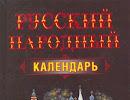And torn in blizzards of midday dust. Reading a diary entry. Analysis of the poem "Listen!" Mayakovsky
“... if the stars are lit, does it mean that someone needs it?” a line from V. Mayakovsky's poem "Listen", written in 1914
"Listen!
After all, if the stars are lit -
So - someone wants them to be?
So - someone calls these spitting *
pearl?
And, tearing up
in blizzards of midday dust,
rushes to god
afraid of being late
crying
kisses his sinewy hand,
asks-
to have a star! --
swears -
will not endure this starless torment!
And then
walks anxious,
but calm on the outside.
Says to someone:
"Are you okay now?
Not scary?
Yes?!"
Listen!
After all, if the stars
ignite -
Does that mean anyone needs it?
So, it is necessary
so that every evening
over the rooftops
lit up at least one star ?!"
There was a stereotypical opinion about Mayakovsky as a "singer of the proletarian revolution", an active supporter, propagandist of the new, Soviet system. His propaganda poems, poems, lines from them are well known to many: “Read, envy, I am a citizen of the Soviet Union”, “Get your fingers on the throat of the proletariat at the world!”, “In four years there will be a garden city here!”
Less well known are Mayakovsky's lyrics, although they are just as wonderful.
"Don't wash away love
no quarrel
not a mile.
Thought out, verified, tested.
Raising solemnly a line-fingered verse,
I swear - I love you unfailingly and faithfully!
Lines and phrases of Mayakovsky, which became winged
- It's better to die from vodka than from boredom!
- love boat crashed on life
- if the stars are lit, then someone needs it
- your word, Comrade Mauser
- nails to make of these people
- I take out a duplicate of a priceless cargo from wide trousers
- the one who is constantly clear is, in my opinion, just stupid
- Lenin lived. Lenin is alive. Lenin - will live
- so life will pass, as the Azores passed
- the Soviets have their own pride
- the most human person
- one is nonsense, one is zero
- the party and Lenin are twin brothers
- how the plumbing, worked by the slaves of Rome, entered our days
* how poetic it is to call the stars spit, and you can also call poop or vomit
88 years ago, on April 14, 1930, the life of the famous poet was tragically cut short Vladimir Mayakovsky. A lot has been written about the mysterious circumstances of his death, about the people who played a fatal role in his fate, about his muse Lila Brik, but almost nothing is known to readers about those who inspired the poet in his youth. Name Sofia Shamardina hardly familiar to the general public, but it was thanks to her that one of Mayakovsky's most beautiful poems was born "Listen!"

In the literary circles of St. Petersburg, Sophia Shamardina was a fairly well-known personality. She has been called "the first futurist artist". It all started in the spring of 1913, when Sophia met Korney Chukovsky in Minsk, where she was from. And after she arrived six months later in St. Petersburg to enter the Bestuzhev courses, Chukovsky “brought her into the light,” as he said: “ Some parents asked me to introduce their daughter to the writers of St. Petersburg. I started with Mayakovsky, and the three of us went to the Stray Dog cafe. Daughter - Sofya Sergeevna Shamardina, a Tatar, a girl of simply indescribable beauty. He and Mayakovsky immediately, at first sight, liked each other. In a cafe, he untwisted, scattered her hair and said: “I will draw you like that!” We sat at the table, they do not take their eyes off each other, they talk as if they are alone in the world, they do not pay any attention to me, and I sit and think: “What will I tell her mom and dad?».

She was 19 at that time, he was 20. Sophia later spoke about their first meeting in her memoirs: “ Mayakovsky saw and heard for the first time in the fall of 1913 in St. Petersburg at the Medical Institute. A lecture on the futurists was read by K. Chukovsky, who took me with him to the institute to show me the living, real futurists. I already knew Mayakovsky from several poems, and he was already “my” poet ... After Korney Ivanovich, Mayakovsky went on the stage - in a yellow jacket, with an impudent, as it seemed to me, face - and began to read. I don’t remember anyone else, although, probably, there were Burliuks and Kruchenykhs ... The whole appearance of Mayakovsky in those days is not forgotten. Tall, strong, confident, handsome. Still youthful, slightly angular shoulders, and in the shoulders an oblique sazhen».

Chukovsky was no longer happy that he had brought Sophia to the Stray Dog and did not hide his annoyance at her rapprochement with the poet - perhaps he himself was not indifferent to the young beauty. But the mutual attraction of Mayakovsky and "Sonka", as he called it, was so strong that they no longer noticed anyone around. They wandered the streets of St. Petersburg, and the poet held her hand in the pocket of his coat, not letting go for a moment. " I didn't need anyone, nobody was interested. We drank some wine together, and Mayakovsky read poetry to me", Sophia said. Later, Lilya Brik will call Shamardina the first true love of the poet.


During one of these walks, the famous lines were born. Sophia wrote in her memoirs: They rode in a cab. The sky was overcast. Only occasionally a star will suddenly flash. And right there, in the cab, a poem began to be composed: “Listen, if the stars are lit, it means that someone needs it? .. Does it mean that at least one star is lit over the roofs every evening?” …Kept my hand in his pocket and talked about the stars. Then he says: “Poems are obtained. It just doesn't look like me. About the stars! Isn't that very sentimental? And yet I will write. Maybe I won't print.».

The bohemian life fascinated the girl so much that she almost forgot about her studies. Soon her parents found out about this, and she had to return to Minsk. At the station she was seen off by Vladimir Mayakovsky and Igor Severyanin, who was also in love with her and dedicated poems to her. " You are escorted by two of the greatest poets of our time", - Mayakovsky said with irony. After her departure, the poets spent a lot of time together and soon decided to perform poetry readings in the Crimea. They were joined by Sophia, whom Severyanin came up with the sonorous pseudonym Esclarmonde of Orleans. Her performances were also a success with the public, it was then that Severyanin began to call her "the world's first futurist artist."

And soon after that, dramatic events took place that put an end to the relationship between Sonka and Mayakovsky. She confessed: This is followed by a heavy streak of my St. Petersburg days, which ended with the destruction of the unborn child. And this was when such a thirst for motherhood ignited in me that only the fear of having a sick freak made me agree to this. Friends did it. I didn’t want to see Mayakovsky and asked him not to tell him anything about me.". In their parting, Korney Chukovsky also played a certain role, who, trying to "save" Sophia, slandered the poet.

With the outbreak of the First World War, Shamardina signed up as a nurse and worked in a military hospital. In 1916, she joined the party, in 1923 Sofya became a party worker, and Mayakovsky laughed at her: “Sonka is a member of the City Council!” Soon she married the People's Commissar for Military Affairs Joseph Adamovich. The poet no longer recognized his former lover in her and reproached her for betraying her futuristic appearance: “You dress like Krupskaya!” A few years after Mayakovsky's death, Sofya's husband committed suicide on the eve of his arrest, and she herself was repressed and spent 17 years in Stalin's camps.

Their love was short-lived, but thanks to Sonka, wonderful poems appeared, which are called one of the most lyrical works of Mayakovsky:
Listen!
After all, if the stars are lit -
So - someone wants them to be?
So - someone calls these spittles
pearl?
And, tearing up
in blizzards of midday dust,
rushes to god
afraid of being late
crying
kisses his sinewy hand,
asks -
to have a star! -
swears -
will not endure this starless torment!
And then
walks anxious,
but calm on the outside.
Says to someone:
“After all, now you have nothing?
Not scary?
Yes?!"
Listen!
After all, if the stars
ignite -
Does that mean anyone needs it?
So, it is necessary
so that every evening
over the rooftops
lit up at least one star ?!
Sonka was the poet's first love, a.
Read the verse "Listen!" Mayakovsky Vladimir Vladimirovich can be found on the website. The poem was written during the poet's passion for Futurism, in 1914. Vladimir Mayakovsky also belonged to the futurist poets, causing polar opinions in literary and reader circles.
The poem "Listen!" unlike other early works of the poet - not a challenge to society, not a denunciation of the layman, but reflection, question and request. The question that “if the stars are lit, then someone needs it” is not just loud rhetoric, but an appeal to oneself and to the unknown power of God with a “veiny hand”. Please stop, look at the starry sky and think about the Universe, about the eternal circle of life. The star appears as a symbol of being, the goal of the universe. An almost childish question, a specific situation filled with deep meaning and an abstract concept. The contrast of two conditional characters - a silent, distant star, lit by an unknown and mysterious force, and a small man, with fear of experiencing "starless torment", getting lost in the "blizzard of midday dust". But uncertainty and fear, despair and anguish make the lyrical hero ask again about the night pearl stars shining in the night sky. However, the hero finds a completely reasonable explanation for his question. It is that the stars will always burn. Every night. Simply because someone is responsible for it, and someone needs it.
The shocking works of poets of the new time, to which Mayakovsky belonged, impressed some with the unexpectedness of new forms, shocked others. However, his bright innovative style and power of expression, special energy remain indisputable. The work can be downloaded in full. The text of Mayakovsky's poem "Listen!" can be taught online in a literature class in the classroom.
Listen!
After all, if the stars are lit -
So - someone wants them to be?
So - someone calls these spittles
pearl?
And, tearing up
in blizzards of midday dust,
rushes to god
afraid of being late
crying
kisses his sinewy hand,
asks -
to have a star! -
swears -
will not endure this starless torment!
And then
walks anxious,
but calm on the outside.
Says to someone:
“After all, now you have nothing?
Not scary?
Yes?!"
Listen!
After all, if the stars
ignite -
Does that mean anyone needs it?
So, it is necessary
so that every evening
over the rooftops
lit up at least one star ?!
"Listen!" Vladimir Mayakovsky
Listen!
After all, if the stars are lit -
So - someone wants them to be?
So - someone calls these spittles
pearl?
And, tearing up
in blizzards of midday dust,
rushes to god
afraid of being late
crying
kisses his sinewy hand,
asks -
to have a star! —
swears -
will not endure this starless torment!
And then
walks anxious,
but calm on the outside.
Says to someone:
“After all, now you have nothing?
Not scary?
Yes?!"
Listen!
After all, if the stars
ignite -
Does that mean anyone needs it?
So, it is necessary
so that every evening
over the rooftops
lit up at least one star ?!
Analysis of Mayakovsky's poem "Listen!"
Mayakovsky's lyrics are difficult to understand, since not everyone manages to see the surprisingly sensitive and vulnerable soul of the author behind the deliberate rudeness of the syllable. Meanwhile, chopped phrases, in which a frank challenge to society often sounds, for the poet are not a means of self-expression, but a certain defense against an aggressive outside world in which cruelty is elevated to the absolute.
Nevertheless, Vladimir Mayakovsky repeatedly made attempts to reach out to people and convey to them his work, devoid of sentiment, falsehood and secular sophistication. One of these attempts is the poem "Listen!", created in 1914 and, in fact, became one of the key works in the poet's work. A kind of rhymed charter of the author, in which he formulated the main postulate of his poetry.
According to Mayakovsky, "if the stars are lit, it means that someone needs it." In this case, we are talking not so much about heavenly bodies as about the stars of poetry, which appeared in abundance in the Russian literary horizon in the first half of the 20th century. However, the phrase that brought Mayakovsky popularity both among romantic young ladies and in the circles of the intelligentsia, in this poem does not sound affirmative, but interrogative. This indicates that the author, to whom at the time of the creation of the poem “Listen!” barely 21 years old, trying to find his way in life and understand if anyone needs his work, uncompromising, outrageous and not devoid of youthful maximalism.
Arguing on the theme of the life purpose of people, Mayakovsky compares them with the stars, each of which has its own destiny. Between birth and death is only one moment by the standards of the universe, in which human life fits. Is it so important and necessary in the global context of being?
Trying to find an answer to this question, Mayakovsky convinces himself and his readers that "someone calls these spitting pearls." BUT, it means that this is the main meaning in life - to be necessary and useful for someone. The only problem is that the author cannot fully apply such a definition in himself and say with confidence that his work can become vital for at least one person other than himself.
Lyricism and tragedy of the poem "Listen!" intertwined in a tight ball that exposes the vulnerable soul of the poet, into which "everyone can spit." And the realization of this makes Mayakovsky doubt the correctness of his decision to devote his life to creativity. Between the lines, one can almost read the question of whether the author would not become a more useful person for society in a different form, choosing, for example, the profession of a worker or a farmer? Such thoughts, in general, not characteristic of Mayakovsky, who, without exaggeration, considered himself a genius of poetry and did not hesitate to openly say this, demonstrate the true inner world of the poet, devoid of illusions and self-deception. And it is precisely these sprouts of doubt that allow the reader to see another Mayakovsky, without the usual touch of rudeness and bragging, who feels like a lost star in the Universe and cannot understand if there is at least one person on earth who would really sink into his soul.
The theme of loneliness and not being recognized as a red line runs through all the work of Vladimir Mayakovsky. However, the poem "Listen!" is one of the first attempts of the author to determine his role in modern literature and to understand whether his work will be in demand years later, or whether the fate of nameless stars, ingloriously extinguished in the sky, is destined for the poems.






